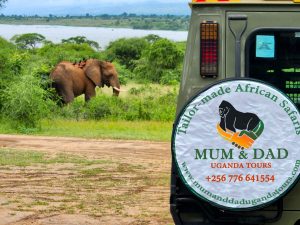Travel information about Uganda
Travel information about Uganda, to Uganda can be an exciting and enriching experience. Here is some travel information to help you plan your trip:
Visa Requirements:
Many visitors to Uganda will need a visa, which can often be obtained upon arrival at the airport or border crossing. However, it’s essential to check the specific requirements based on your nationality before traveling.
Vaccinations:
It is advisable to consult a healthcare professional before traveling to Uganda to ensure you have the necessary vaccinations. Common vaccinations recommended for travelers to Uganda include those for yellow fever, hepatitis A and B, typhoid, and meningitis.
Safety and Security:
While Uganda is generally a safe country for tourists, it’s important to stay informed about the current situation and follow any travel advisories from your home country. Exercise caution, particularly in crowded places and urban areas, and be aware of your surroundings at all times.
Transportation:
Uganda has a well-established transportation network, including buses, minibusses (matatus), and taxis, which are the primary means of getting around within cities and between major towns. Private taxis and motorcycle taxis (boda-bodas) are also common, but it’s essential to use reputable services.

Accommodation:
Uganda offers a range of accommodation options, including luxury hotels, lodges, guesthouses, and budget-friendly hostels. In popular tourist destinations, there are also opportunities for eco-lodges and camping.
Attractions:
Uganda is known for its diverse wildlife and natural beauty. Some of the must-visit attractions include Bwindi Impenetrable National Park for gorilla trekking, Queen Elizabeth National Park for wildlife safaris, Murchison Falls National Park for its dramatic waterfalls, and Jinja for its adventure sports and the source of the Nile River.
Culture and Etiquette:
Ugandans are known for their warmth and hospitality. It’s essential to respect local customs and traditions, dress modestly, and ask for permission before taking photos, especially in rural areas or near local communities.
Currency and Payments:
The official currency of Uganda is the Ugandan shilling (UGX). While some places may accept credit cards, it’s advisable to carry cash, preferably in the local currency, for transactions in smaller towns and local markets.
Health and Safety:
It’s important to drink bottled or boiled water and avoid consuming tap water to prevent water-borne diseases. Additionally, use insect repellent and protective clothing to guard against mosquito-borne illnesses, such as malaria.
Before traveling, ensure you have comprehensive travel insurance that covers medical emergencies and evacuation. Research and plan your itinerary well in advance to make the most of your time in Uganda.
You Can Book or Inquire Any of Our safaris Now & Save Up To 10%
Are you interested in any of our safaris? or you would like to find more detailed information about our tours and safaris? please Let us know your travel needs by filling the form below and we will send you all the necessary information about this trip including quotes, availability regarding the number of people on this trip.We can’t wait to organize your ground handling service via our company MUM AND DAD UGANDA TOURS.
✓ No Hidden Costs | ✓ 24/7 Support
